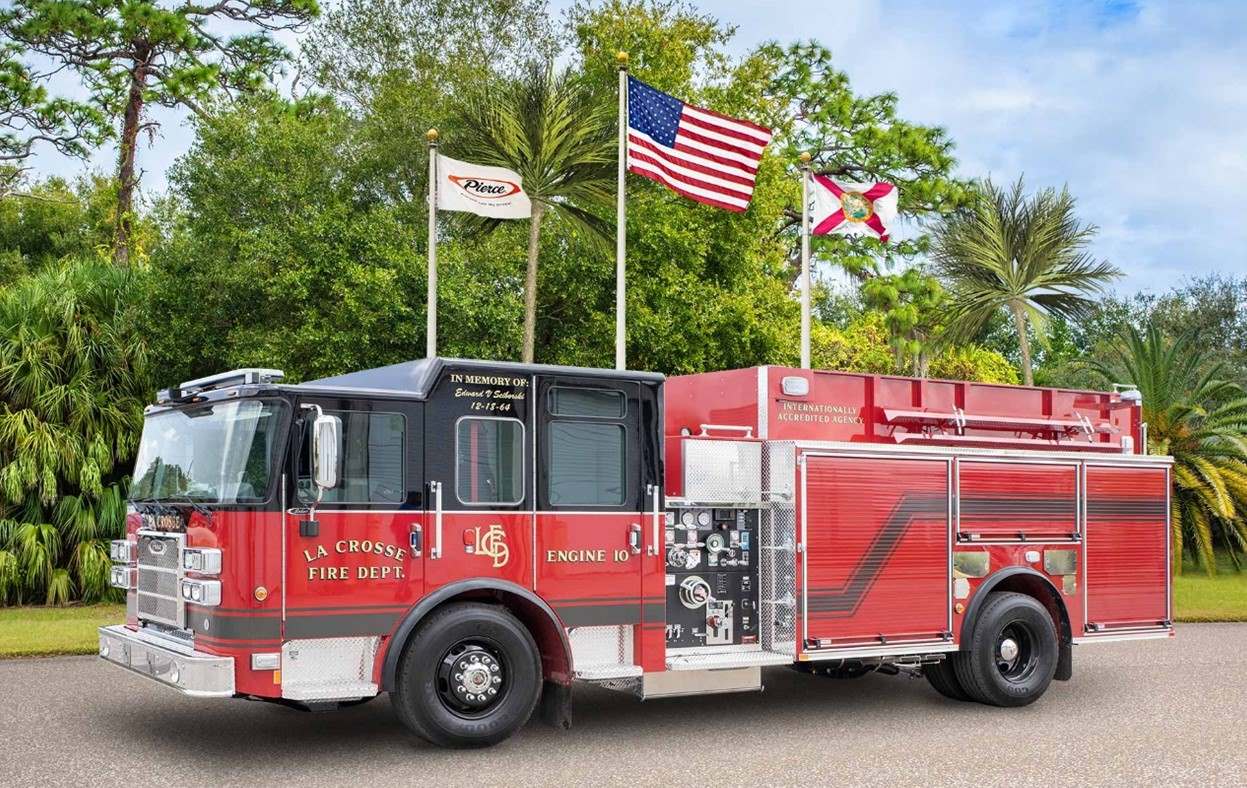At least 10 Johnson Controls employees have sued the company, alleging they’re owed thousands of dollars in unpaid commissions.
A federal lawsuit from six sales representatives was filed in the U.S. Eastern District Court of Wisconsin last month. Four other lawsuits from sales representatives have been filed in Michigan since mid-January.
The lawsuits center around changes Johnson Controls — a producer of fire, HVAC and security equipment with corporate offices in Glendale — made to its long-standing commissions policy.
News with a little more humanity
WPR’s “Wisconsin Today” newsletter keeps you connected to the state you love without feeling overwhelmed. No paywall. No agenda. No corporate filter.
Federal lawsuit outlines policy changes
For the last couple of decades, the company paid commissions to salespeople over the course of a project’s contract, with about 20 to 25 percent of the commission coming after the contract closed, the federal lawsuit says.
The remaining 75 to 80 percent of the commission — known as a “backlog” — would be paid over the life of the project, which could range from months to years, according to the suit. Sales representatives allegedly had backlogs ranging from a few thousand dollars to some that were “well into the six figures.”
In November, court documents said Johnson Controls announced it would change its commission policy for the 2024 fiscal year, eliminating the use of the backlog and shifting to a plan where commission is paid when a project is booked instead of over time.
Under the new policy, the federal lawsuit said the company continued servicing contracts and working on projects where “billions of dollars” in commissions were due, but went back on its promise to pay those commissions to workers.
“Unlike with plan changes in previous years, (Johnson Controls) unilaterally determined that commission for any sales made during previous years under prior versions of the plan would not continue to be governed by the plans in effect at the time of the sale,” the suit said.
That meant sales representatives’ commissions backlogs would no longer be paid out. Instead, employees would receive a “bridge payment” to assist in the transition to the new commission structure, court documents said.
But the federal lawsuit says bridge payments the six employees received in November were only about 22 percent of their accrued backlog. The suit says the company has scheduled two more bridge payments for June 2025 and June 2026, each representing 14 percent of employees’ backlogs. If those payments are made, the suit estimates sales representatives would still only see about 50 percent of what they’re owed.
The federal suit is asking for damages from Johnson Controls and a court ruling requiring the company to pay the commissions. It also asks for an order granting class-action status to commissioned sales staff across the country.
Michigan attorney: Policy change constitutes wage theft
In a statement, Johnson Controls said it routinely assesses its practices to support the growth and achievements of its employees.
“We modified our sales incentive program to better align with our company strategy to deliver smart, healthy and more sustainable environments for our customers,” the statement read. “We will continue to assist our sales organization to ensure a seamless transition to our revised competitive model.”
Attorney Heidi Sharp, whose firm is representing four Johnson Control employees in four lawsuits in Michigan, said the company has effectively wiped the outstanding backlogs from its books.
“They’ve even used the term that they’ve ‘sun-downed’ that (old commission) plan and therefore they’re not going to pay my clients or any of the other sales persons across the country,” Sharp said.
“Our position is that this is a retroactive change to their commission plan,” she added. “The jobs have been sold, the work has been done and they are retroactively now trying to say that they’re going to change how they paid the sales persons for the jobs that they sold.”
Sharp said the lawsuits in Michigan aim to help the sales representatives receive the entire commission they’ve earned. She also said Michigan has a state law that could require Johnson Controls to pay twice the amounts due with a cap at $100,000.
“Johnson Controls has the money and yet they’re still refusing to pay our clients their earned commissions,” Sharp said.
Sharp added that all of her clients are currently employed by Johnson Controls and had taken steps to address the issue before filing a lawsuit against their employer. But she also said the employees felt they had no option but to pursue litigation.
“I think these guys are brave,” she said. “We’re looking at cases for any of the sales people who feel that they’re owed commissions, and we’re going to continue to do so because we see this as wage theft.”
Wisconsin Public Radio, © Copyright 2025, Board of Regents of the University of Wisconsin System and Wisconsin Educational Communications Board.







